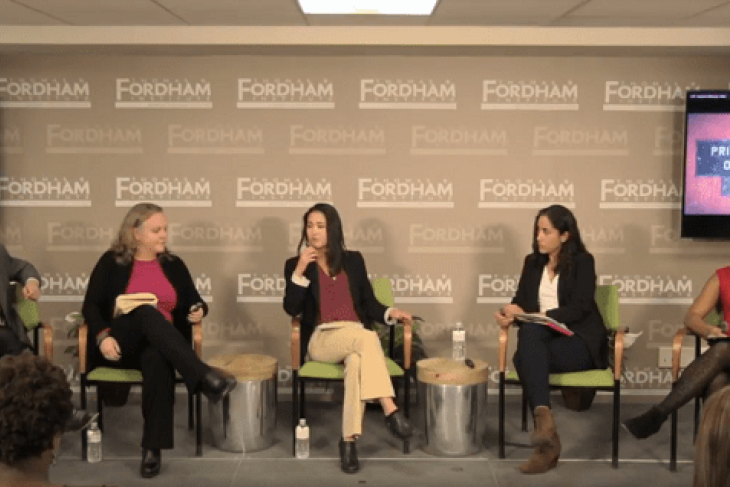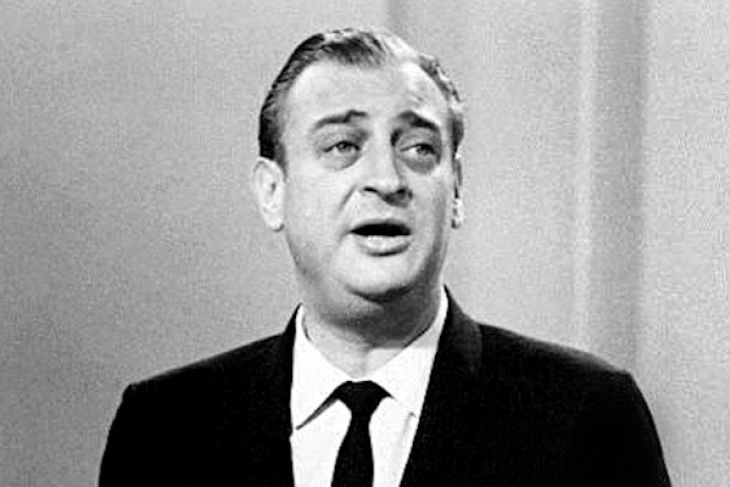Today’s identity politics has another interesting feature: It teaches students to think in a way antithetical to what a liberal arts education should do. When I was at Yale in the 1980s, I was given so many tools for understanding the world. By the time I graduated, I could think about things as a Utilitarian or a Kantian, as a Freudian or a behaviorist, as a computer scientist or a humanist. I was given many lenses to apply to any one situation. But nowadays, students who major in departments that prioritize social justice over the disinterested pursuit of truth are given just one lens—power—and told to apply it to all situations. Everything is about power. Every situation is to be analyzed in terms of the bad people acting to preserve their power and privilege over the good people. This is not an education. This is induction into a cult, a fundamentalist religion, a paranoid worldview that separates people from each other and sends them down the road to alienation, anxiety, and intellectual impotence.
A good education doesn’t offer one lens through which to see ourselves and the world, rather it offers a great variety of lenses. Whatever reductive pressures are exerted onto a curriculum or onto the teaching of a subject, those of us who have an interest in what we term, broadly, ‘the liberal arts’, need to ensure we teach and design courses which offer up arguments rather than just presenting narrow answers or a ‘world view’. The pursuit of wisdom is never served by insisting one way of seeing the world has dominion over all others.
This is not to say that all things are relative. Far from it. It is only by engaging in debate, by testing out ideas and hypotheses, with the underlying belief that some things are better than other things, can we free up individuals to think for themselves and enable them to add to the great conversation in a way that opens and engages minds rather than closes and disengages them. A relativist can leave all others numb by saying ‘well, it’s my opinion,’ and refuse to engage any further. In other words: ‘truth is an individual construct—so leave me alone…’ Relativism is also antithetical to a liberal arts education.
An educational institution should not be a place which suggests it ‘knows’ the truth. The age old adage that the more we know, the more we realize we don’t know, should underpin the academy. This gives us great hope in that it has a vested interest in the importance of the voices of those who teach, the voices of those whom they teach about, and also the voices of those who are taught and those whose voices will follow. This social contract between the dead, the living, and the yet to be born insists on no group having more insight than any other but that by coming together we might find ourselves closer to wisdom than by keeping resolutely apart.
The academy should be notable by its variety of subjects from across the spectrum of knowing, and students at school and university should be educated through as many substantial and different lenses we can muster to enable a more thoughtful engagement between themselves and the world. The more perspectives that we can offer the more likely we are to educate successfully. These perspectives need to offer breadth and they also need to be experienced in depth in order to unveil their truths. This means some inevitable compromises are made, but young people should experience learning from as many broad lenses as we can muster.
There is only a perspectival seeing, only a perspectival “knowing”; and the more affects we allow to speak about a matter, the more eyes, different eyes, we know how to bring to bear on one and the same matter, that much more complete will our “concept” of this matter, our “objectivity” be.
If we narrow or reduce perspectives, we are more likely to falter in error than we are to glimpse the truth. Students need to access a full and varied curriculum from an early age and for as long as is possible in such a way so that their thinking and experiencing will not atrophy over time. Subjects should be taught with dialogue, argument, and debate at their heart, to ensure that perspectives can clash along nicely throughout the heart of the school’s offer. Pupils should also get a good grounding in philosophy, thought, ethics, and aesthetics.
In order to ensure an education that offers a good range of perspectives, there needs to be a range of subjects on offer. This means starting specialist subject teaching sometime during primary education, expanding the offer during middle school and ensuring pupils are able to access a good number of subjects by the time they reach high school. The arts and humanities, languages, social sciences, technology, and physical/health education options ought to be kept up as long as possible alongside English, math and sciences. It is essential to offer a good extracurricular program too, including traditional options like school productions, orchestras, galleries, sports teams, quiz and debating teams, etc. This means that alongside high school end-of-course exams, Advanced Placement, IB, etc., options are available to complete voluntary work and be recognized for involvement in extracurricular activities. A house system helps develop pupil leadership and widens participation in such team events beyond elite inter-school level competition.
For those who study or intend to study more vocational options, I would hope an academic/cultural stream of opportunities—both for study and extracurricular work—is also accessible. All work and no play/reading/writing/thinking about ‘the big questions’ makes Jack and Jill dull…
This is what an expansive curriculum can offer, not dullness, but vibrancy, and the opportunity for young people to flourish.
Editor’s note: This article originally appeared in a slightly different form on the author’s blog, Trivium21c.
The views expressed herein represent the opinions of the author and not necessarily the Thomas B. Fordham Institute.




